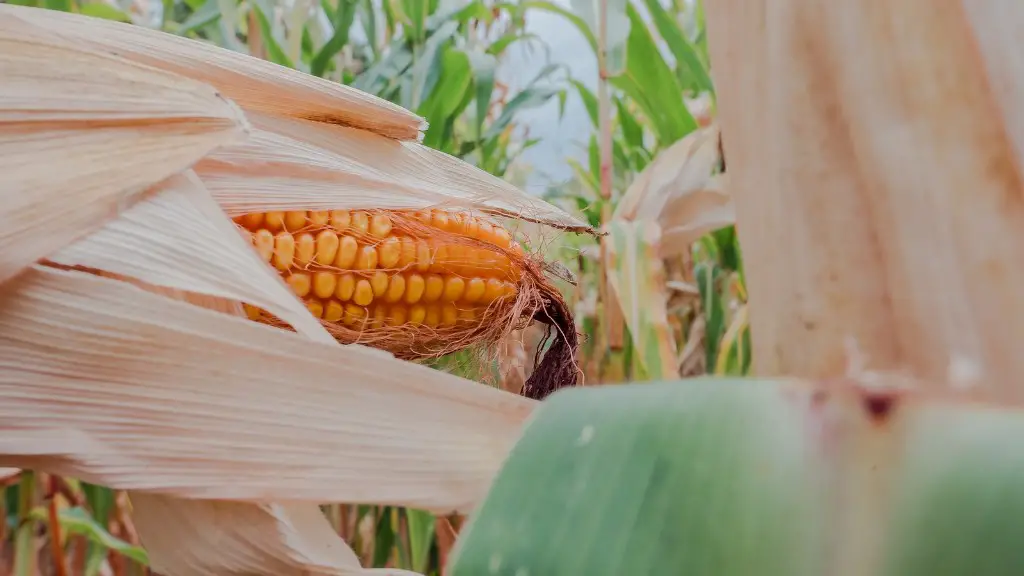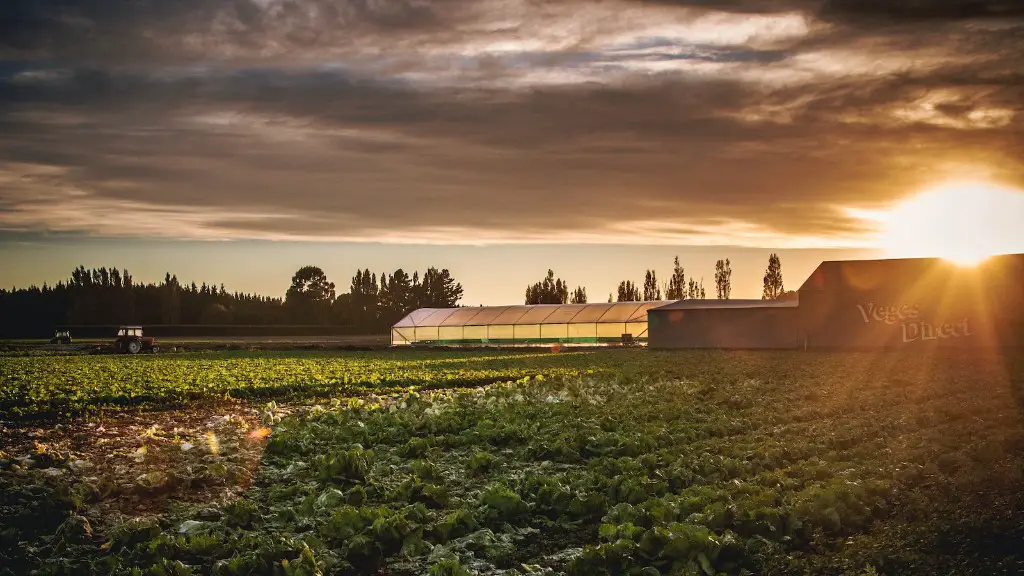Agriculture has a major impact on the environment, the economy, and our health, so it’s essential that we provide students with a strong education in this subject and ensure they understand the impacts it has on their lives and the world around them. Here are seven reasons why teaching agriculture in school is so important.
Firstly, agriculture helps us understand our connection to the environment and the importance of balanced ecosystems. By exploring agriculture, children can learn about the impact of human actions on nature, the essential relationship between farmers and their land, and how food is produced. This helps them develop an appreciation for the environment and encourages their engagement in protecting it.
Secondly, learning about agriculture teaches important life skills, such as communication, problem-solving and resilience. This is especially true for practical activities, such as growing food, which help young people develop a sense of responsibility and the confidence to take on new challenges.
Thirdly, understanding the science and technology behind agriculture helps children develop a broader view of the world. They can learn about sustainable food production and the wider implications that go with it, such as how the agricultural sector impacts people’s access to resources, livelihoods, and the economy.
Fourthly, it is essential that students have an appreciation of the cultural importance of agriculture, particularly in an increasingly connected world. Learning about different farming methods and food systems around the world gives students insight into unique traditions and societies, as well varieties of food production that help us to feed the planet.
Fifthly, agriculture in school helps create an understanding of our food supply chain and the concepts of food security and nutrition. This knowledge can give students the confidence to make more informed and healthy dietary choices, including when grocery shopping and preparing meals.
Sixthly, teaching agriculture in school can help create a more informed and engaged society. Inviting experts to teach about the agricultural sector can help students gain a better understanding of how this vital sector influences their lives, thus helping them to make more informed decisions as citizens.
Seventhly, agriculture is an increasingly attractive career option, and it’s important to introduce young people to the possibilities it presents. Teaching about agriculture can help students to make more informed career choices, as well as to discover and explore a range of related roles and industries that could be of interest.
The Benefits of Agricultural Education
Understanding the benefits of agricultural education can help to support the case for more robust curriculums around this subject. Agricultural education can have a range of benefits, both in terms of the economy and society, and there is strong evidence to suggest that it enables more engaged citizens and more resilient rural economies.
Firstly, studying agriculture can help to bridge educational disparities in rural areas, as curriculums often serve to connect students to local industries and communities. The direct connection to the local environment and community can help motivate children and young people to stay in school.
Secondly, agricultural education also helps to strengthen the relationship between the public and rural food producers. By exploring the sector, students gain an appreciation of the value behind food production, from seed to plate. They can also learn about the importance of safety, regulatory and ethical considerations, which can lead to a better understanding of the global food supply.
Thirdly, agricultural education can also help to build a more sustainable agricultural system, as it can provide students with the technical skills and knowledge to understand and appreciate the nuances of different farming and food production systems. This knowledge can be used to inform decision-making, allowing for better technical and policy choices.
Fourthly, agricultural education provides students with a holistic view of the agricultural sector, giving them a better appreciation of the complexities of food production, food security, nutrition and the environment. This can help foster more engaged citizens, as well as encouraging more informed political and economic decision-making.
Fifthly, modern-day agriculture is highly technologically driven, and providing agricultural education can help to provide students with the skills needed to succeed in this field. This knowledge can be applied to a range of roles, from farm management to software development or business management, or for research and policy work.
The Benefits of Writing and Communication Skills in Agriculture
Understanding the importance of writing and communication skills in agriculture is crucial for students to be successful in the field. Writing and communication are key skills for success in a number of roles in the agricultural industry, from creating policy and implementing projects to communicating with the public.
Firstly, the ability to write concisely and effectively is essential for developing strong policy proposals and government strategies with input from a wide range of stakeholders. Knowledge of the sector, combined with strong writing and communication skills, can help to create more effective policy solutions that reflect the needs of all parties.
Secondly, clear and effective writing and communication can help to create more positive public engagement in the sector. It can also be used to help develop more sustainable solutions through the identification and collaboration of ideas from the public. This can help to create better outcomes by ensuring everyone has a say.
Thirdly, writing and communication skills are essential for creating educational and promotional materials to increase public awareness of issues related to the agricultural sector. Understanding how to effectively communicate the importance of an issue or initiative, as well as presenting factual information in an engaging way, is essential for successful outcomes.
Fourthly, effective writing and communication can help students in the agriculture sector to become more effective in their roles. It can help to create more meaningful relationships with partners, create more successful business plans, and make better decisions by carefully considering the facts and information.
Fifthly, strong writing and communication skills can help to create successful funding strategies for projects and initiatives. By effectively communicating their vision and objectives, and how their project or initiative will create meaningful outcomes, students can apply for the necessary funds to bring their ideas to life.
The Benefits of STEM Education in Agriculture
The use of STEM education in the agricultural sector is becoming increasingly important, as the sector becomes more reliant on technology and data-driven solutions. STEM education in agriculture helps to foster an understanding of the technical issues and data systems, as well as how technology can be used to better understand and tackle the challenges faced by the sector.
Firstly, STEM education helps to create a more comprehensive view of the agricultural sector and the issues faced. Students can learn to use modern technology, such as satellite imagery, to gain a better understanding of their local land and its characteristics in order to identify trends and patterns related to food production.
Secondly, STEM education can help students to understand the fundamentals of entrepreneurship in the agricultural sector. It can provide them with the technical skills and knowledge to create financially successful companies, as well as the ability to analyze data related to the sector and make better decisions.
Thirdly, STEM education can help students to develop innovative solutions for the agricultural sector. By understanding how technology can be applied, students can create and implement new solutions to help make food production more sustainable and efficient, from water irrigation to indoor farming.
Fourthly, STEM education also helps to address issues related to food security and nutrition. Through the use of technology and data-driven solutions, students can become more aware of the state of global food supplies and the challenges such as poverty and resource scarcity that exist.
Fifthly, STEM education in agriculture can also help students to better understand the environmental impacts of food production and the importance of taking a holistic approach to production. They can learn how to create advanced predictive models which can help to analyze and plan for future changes in the sector, such as climate change, population growth and resource scarcity.
The Benefits of Hands-On Learning
Hands-on learning is an important element of agricultural education, as it helps to bring theoretical concepts to life. It can also help to foster a deeper understanding of the subject, as well as allowing students to gain real-world experience and build practical skills.
Firstly, hands-on learning gives students an opportunity to get a better understanding of where their food comes from and how it is produced. By engaging in practical activities, such as growing food and exploring farms, they can learn the basics of farming, food production and distribution, giving them insight into the complexities of the sector.
Secondly, hands-on learning also provides students with important collaboration and problem-solving skills. By working together to complete projects and tasks, they can learn how to be part of a team and how to negotiate and compromise in order to reach a consensus.
Thirdly, hands-on learning helps to build self-confidence and independence. As students gain a deeper understanding of the concepts and skills that are taught in the classroom, they are able to take ownership of their learning and be more confident when tackling new challenges.
Fourthly, hands-on learning can also help to create a more sustainable agricultural sector, as it can provide students with the skills and knowledge to move towards more self-sufficient and regenerative farming models. This can help to reduce the impacts of farming on the environment, while also improving profitability and food security.
Fifthly, hands-on learning can also help to inspire a career in the sector. By introducing students to the basics of the industry, such as operating machinery, they can gain an appreciation for the opportunities and possibilities within the field, as well as the potential for career development.





